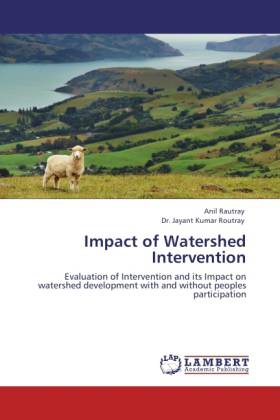
- Afhalen na 1 uur in een winkel met voorraad
- Gratis thuislevering in België vanaf € 30
- Ruim aanbod met 7 miljoen producten
- Afhalen na 1 uur in een winkel met voorraad
- Gratis thuislevering in België vanaf € 30
- Ruim aanbod met 7 miljoen producten
Zoeken
Impact of Watershed Intervention
Evaluation of Intervention and its Impact on watershed development with and without peoples participation
Anil Rautray, Jayant K. Routray
Paperback | Engels
€ 96,45
+ 192 punten
Omschrijving
Integrated watershed development program has been launched in different states of India over last two decades for managing natural resources to increase overall productivity and to improve the socioeconomic development of the native population following the participatory planning principles. watershed is taken as a spatial planning unit with focus on natural resources such as land, water, forest, agriculture, livestock, horticulture and other sectoral activities with linkages to rural poverty alleviation through employment and income generation. In general, the institutional framework is well structured for implementing different projects in the watershed involving line agencies, NGOs and local people as the beneficiary and active participants of development process.With this background, an attempt has been made in this research to study and analyze the development activities undertaken by the technical agencies in a micro-watershed and the outcomes of the interventions.
Specificaties
Betrokkenen
- Auteur(s):
- Uitgeverij:
Inhoud
- Aantal bladzijden:
- 172
- Taal:
- Engels
Eigenschappen
- Productcode (EAN):
- 9783845418230
- Verschijningsdatum:
- 5/08/2011
- Uitvoering:
- Paperback
- Afmetingen:
- 152 mm x 229 mm
- Gewicht:
- 259 g

Alleen bij Standaard Boekhandel
+ 192 punten op je klantenkaart van Standaard Boekhandel
Beoordelingen
We publiceren alleen reviews die voldoen aan de voorwaarden voor reviews. Bekijk onze voorwaarden voor reviews.








